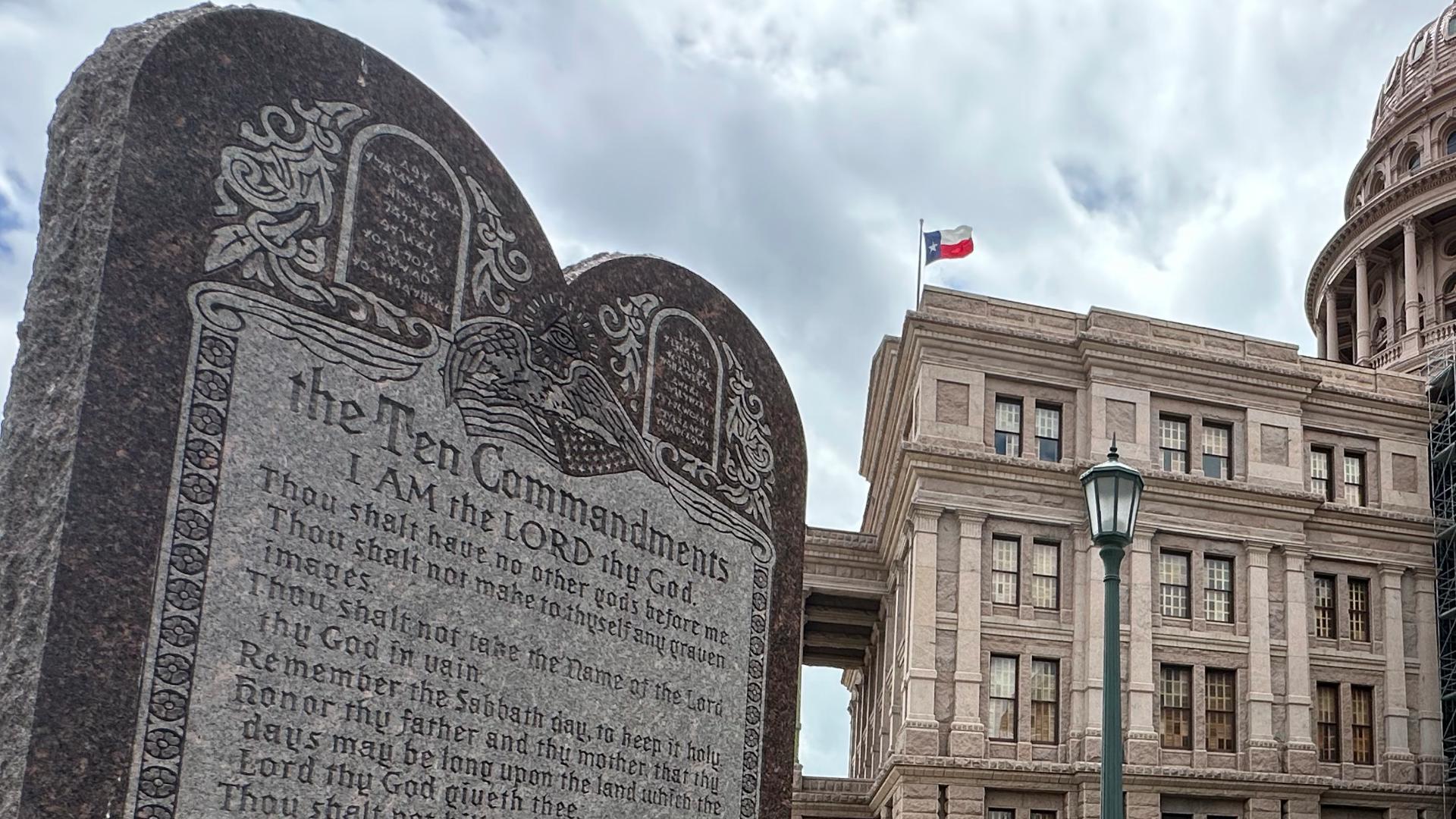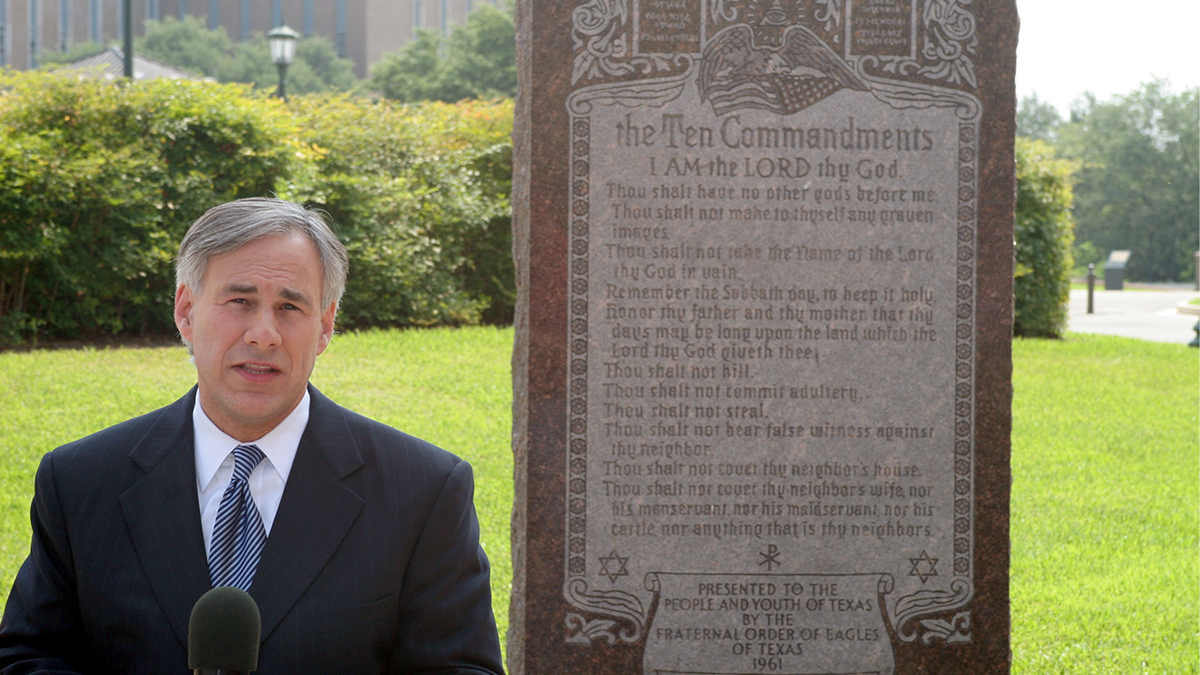
The Texas Senate recently passed two bills that are reshaping the role of religion in public schools, advancing proposals that would require the display of the Ten Commandments in classrooms and allow students time for prayer during school hours. The developments mark a significant shift in the state's education policy and reflect the growing influence of conservative Christian values in public life.
The bills have sparked a passionate debate on the separation of church and state, with both proponents and critics weighing in on the potential implications for public education and religious freedoms.
Senate Bill 11, also known as the school prayer bill, was passed by the Texas Senate on a 23-7 vote, securing final approval before it heads to the Texas House for further consideration. The bill allows public school districts to provide students with designated time during school hours to pray, a move that supporters argue is essential for preserving religious liberty in the public sphere.

Notably, the bill does not mandate prayer but permits school districts to create time during the school day for voluntary prayer. This would allow students to express their faith freely in a public school setting, something that some argue has been increasingly restricted in recent years.
The passing of Senate Bill 11 is seen as a major victory for religious conservatives who have long advocated for the inclusion of more religious practices in public schools. This bill is part of a broader agenda by conservative groups to push for a reawakening of faith in American public life, particularly in the educational system.
Republican Senators, including Mayes Middleton of Galveston and Phil King of Weatherford, authored the bill and expressed confidence that it would stand up to any legal challenges. The authors have pointed to recent court rulings as signs that efforts to reintroduce religion into public schools are likely to be upheld, despite opposition from groups that argue such actions violate the constitutional principle of church-state separation.
Middleton, in a statement after the vote, emphasized that schools should not be places "free of God" and that public institutions should allow students and educators the freedom to express their religious beliefs. He also thanked former President Donald Trump for making prayer in public schools a priority during his presidency, an indication of the strong connection between religious freedom and political advocacy within certain conservative circles.

In addition to Senate Bill 11, the Texas Senate also gave initial approval to Senate Bill 10, which mandates that the Ten Commandments be displayed in every public school classroom. This bill passed with a 20-10 vote and is expected to move through the legislative process in the coming weeks.
The Ten Commandments bill is part of the same conservative agenda that seeks to make religion more visible in public life, particularly in the context of public schools. Supporters of the bill argue that displaying the Ten Commandments would remind students of the moral foundations that the nation was built upon, reinforcing values that many believe are essential for the well-being of society.
Both bills are part of a broader movement by conservative Christians in Texas to influence the educational system and restore what they perceive as moral decline in the nation. These measures, however, have not been without controversy.
Critics, particularly from more liberal and secular perspectives, argue that the bills would violate the rights of non-Christian students and families, potentially creating a religiously exclusive environment in public schools. Senators from the Democratic Party, such as Nathan Johnson of Dallas, voiced their concerns during the Senate debate, arguing that the bills would infringe on the religious freedoms of Texans who do not identify with Christianity.

Johnson criticized the school prayer bill, pointing out that it expands the role of public education into areas that conservatives typically argue should be private matters, such as religious practices. He and other critics fear that these bills could alienate non-Christian students and create a divisive atmosphere in schools.
The inclusion of Bible references in the school prayer bill, without consideration for other religious texts, has further fueled concerns that the bills favor one religion over others.
The opposition from faith groups has been vocal as well. A coalition of 166 faith leaders, including representatives from Sikh, Baptist, Jewish, and Buddhist communities, sent a letter to the Texas Legislature urging lawmakers to reject both bills.
The letter argues that public schools should not be transformed into places of religious instruction, emphasizing that the state must maintain a commitment to religious neutrality in its public education system. These faith leaders assert that while individuals should be free to practice their religion, public schools should not become institutions that promote any one religious viewpoint.

Despite the pushback from religious minorities and civil liberties groups, the bills have received strong support from conservative factions in Texas, where there is a growing sentiment that the country has drifted too far from its religious roots. Supporters of these bills argue that public schools are meant to reflect the values of the communities they serve, and for many Texans, those values are deeply rooted in Christian faith.
They point to the historical and cultural significance of the Ten Commandments and prayer in the development of the nation, arguing that these values should continue to be promoted in public spaces, including schools.
The debate over these bills is also part of a broader trend in the United States, where conservative religious groups have been seeking to reassert their influence in public life. In recent years, state governments across the country have passed laws requiring the display of "In God We Trust" signs in classrooms, allowing for prayer in schools, and encouraging the teaching of the Bible as part of the curriculum.
These actions are seen by supporters as a necessary countermeasure to what they perceive as the erosion of traditional values in society.
In Texas, the push for more religious presence in public schools is not limited to these two bills. Lawmakers have also approved measures allowing unlicensed religious chaplains to serve in public schools, a move that has drawn both praise and criticism.
Some view the presence of chaplains as a way to provide students with spiritual guidance, while others see it as an unnecessary intrusion into the lives of students who may not share the same religious beliefs.
These developments highlight the ongoing debate over the role of religion in public life and education. As the bills move through the Texas Legislature, it is likely that the controversy will continue to grow, with proponents and opponents voicing strong opinions on both sides.
Whether or not these bills will ultimately withstand legal challenges remains to be seen, but for now, they represent a significant step in the conservative movement to reshape the role of religion in America's public schools.

-1742443737-q80.webp)
-1742979318-q80.webp)
